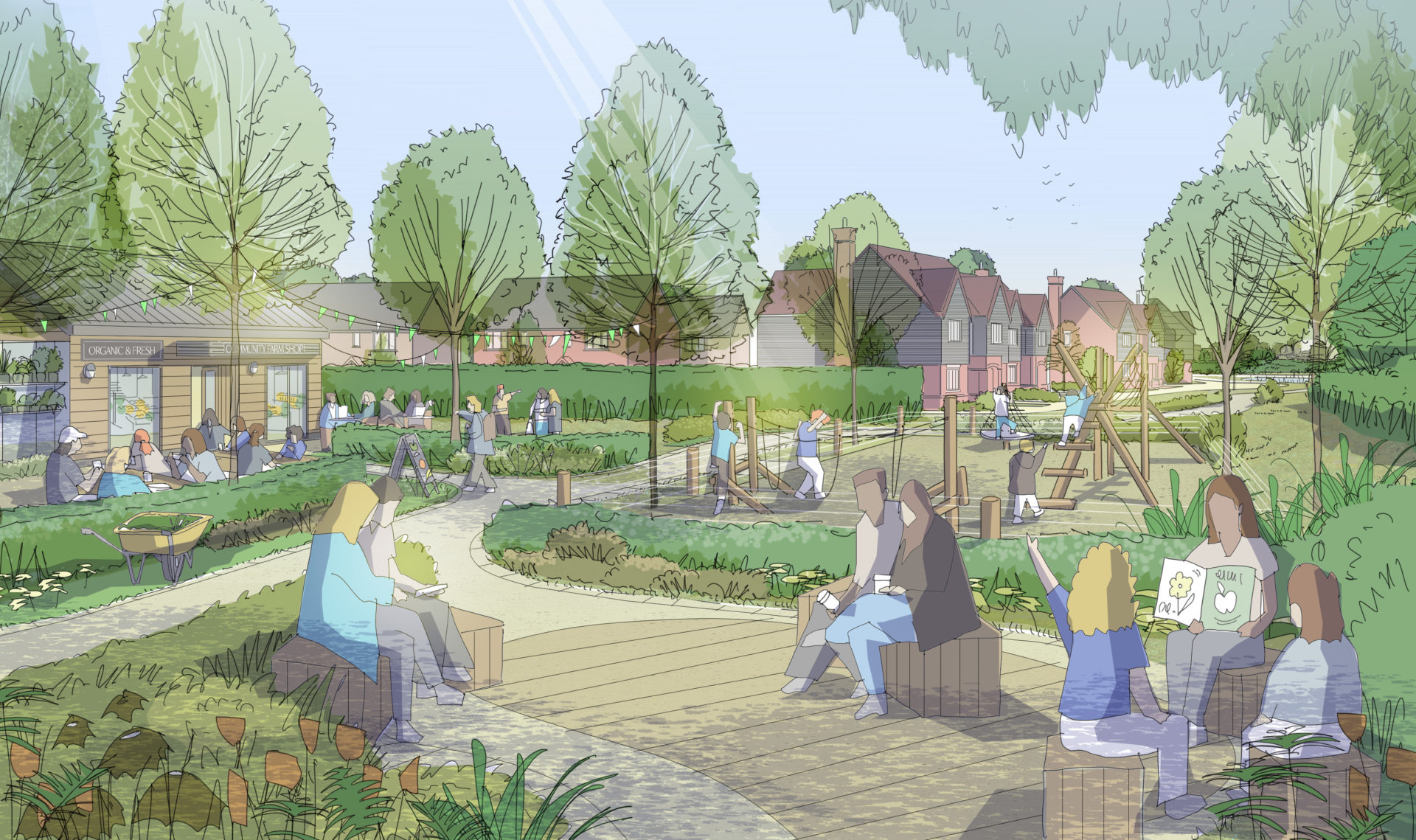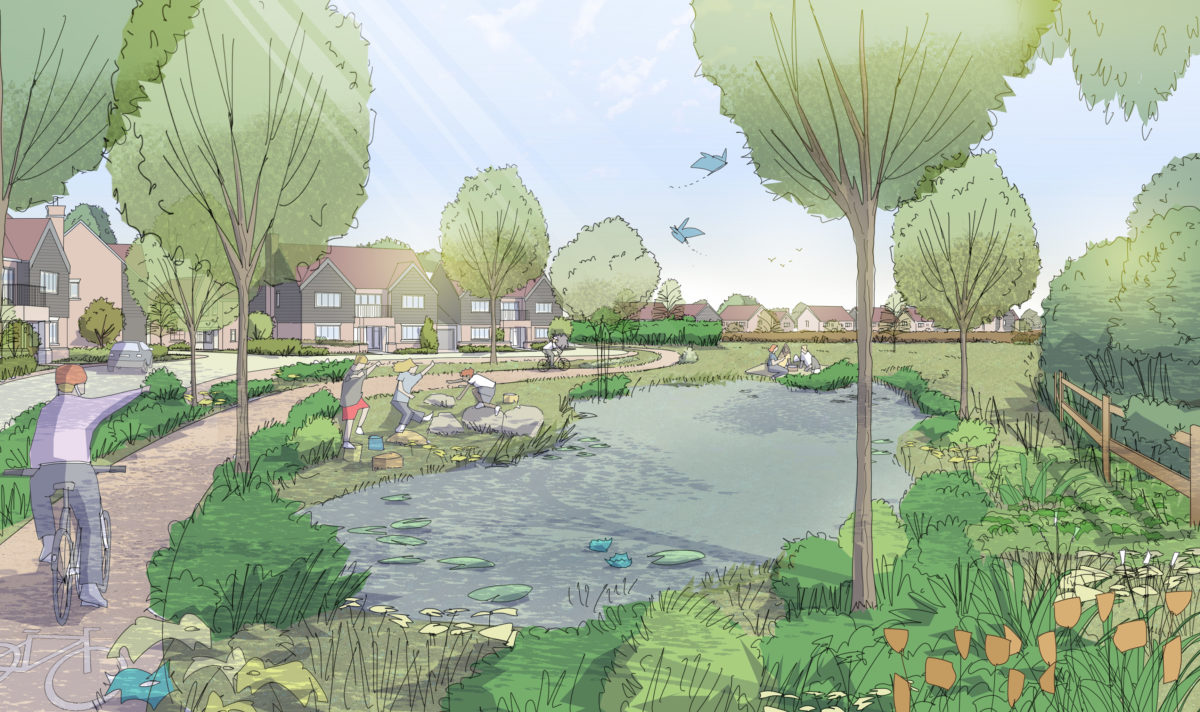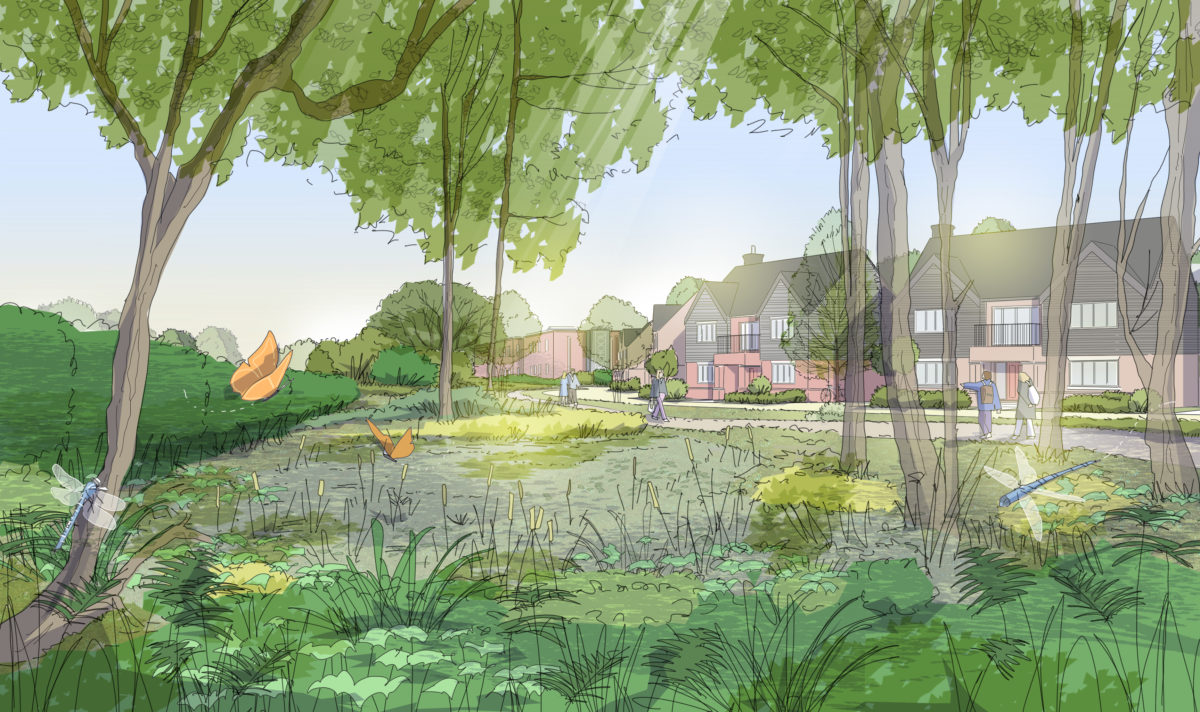The neighbourhood will provide 150 homes in a variety of sizes, from one-bedroom to five-bedroom dwellings, ensuring diversity and affordability, with over 50% of homes designated as affordable. Well-designed streets and public spaces with clear routes, landscaped spaces, active frontages and trees will establish a walkable community that prioritises connectivity and social interaction with the wider Kings Langley community. The project delivers a minimum 10% biodiversity net gain by proposing over two hectares of public open space, habitat ponds and wetlands encouraging wildlife connections and nature recovery networks.
A key component of the proposal was an alternative educational facility. A significant proportion of children experience challenges within traditional educational and built environments, with research suggesting that up to a third of children live with physical and/or mental health conditions. Harnessing place data and stakeholder engagement, the need for an alternative education facility emerged through the consultation process, including direct engagement with Kings Langley Secondary School (KLSS). This educational and community hub became a key focus of the proposals resulting in the design of “The Farmstead”, managed by Sunnyside Rural Trust and which will sit adjacent to KLSS and form the community heart of the site.
Created through a vision process with KLSS students and Sunnyside Rural Trust who have experience of similar facilities in Berkhamsted and Hertfordshire, the Farmstead will create a supportive environment for children through the provision of on-site learning and therapeutic services. The multi-functional facility will include a café, farm shop, and dedicated growing spaces, alongside health and wellbeing programs offering therapy gardens and animal-assisted activities. The Farmstead will also foster improved community support by offering paid work, training, and skill development for local people with learning disabilities. Together, these facilities play a critical role in supporting the pupils at KLSS and other educational settings, while also delivering wider social value to the community.
Alongside workshops with KLSS, consultation with the local community also included a dedicated project website, over 2,400 flyers hand-delivered to residents, a targeted Instagram video and a community consultation event which involved a variety of activities such as apple pressing, soup making, chicken feeding and a market stall with fresh produce to get people actively involved in shaping the design proposals.


